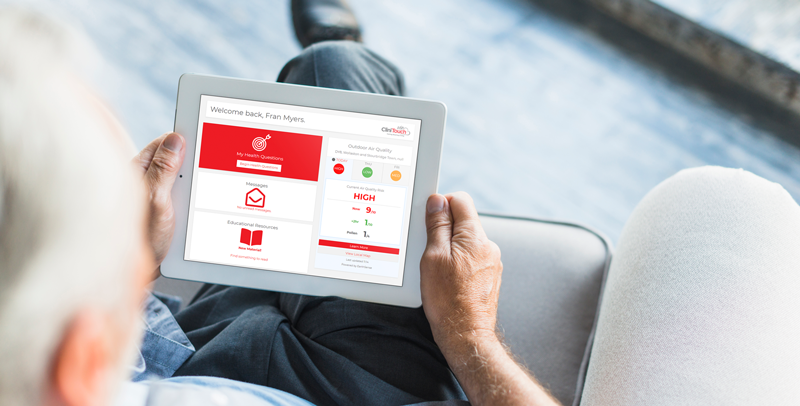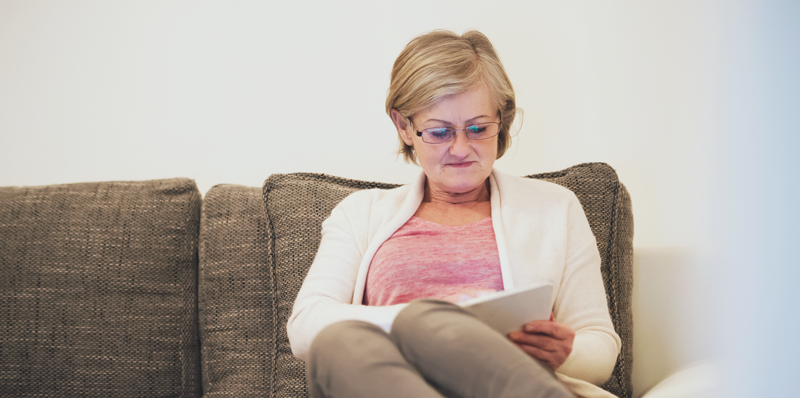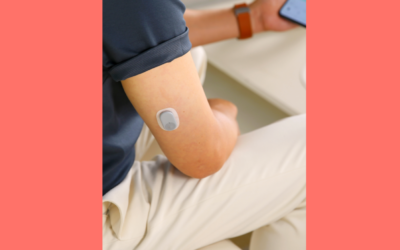By Sophie Davis-Cooper on February 1, 2021
A recent article from the Health Service Journal (HSJ) revealed that NHS Trusts are being told to “ramp up their treatment of COVID-19 patients at home in order to free up more beds during the peak of the pandemic,” as part of recent plans announced by NHS England and NHS Improvement.
This echoes NHSE’s call for virtual wards to be rolled out to all areas of England to support COVID-19 patients remotely at home in order to free up hospital capacity. The recommendation states that:
‘All areas should pursue immediate rollout of a COVID ‘virtual ward’ model as an option for clinicians to admit to, for earlier safe and supported discharge if this model is not in place already.’
With cases and death-tolls rising across the country, healthcare professionals are under more pressure than ever before to treat patients who are both sick and vulnerable. However, innovative technology, such as remote monitoring, can help patients be cared for from the comfort of their own home.
The Government has already highlighted the importance of remote monitoring in its ‘Plan to Rebuild’ campaign, stating that the future of healthcare might include increased uptake of telemedicine and remote monitoring to give patients hospital-level care from the comfort and safety of their own homes. Despite an already notable increase of remote monitoring technology in health and care settings, doubling from 14% to 28% in a recent survey, the NHS must continue to embrace digital solutions in order to help existing services work more coherently and deliver care safely and effectively to those most vulnerable.
Spirit’s COVID-19 Post-Discharge Offer
Spirit Health can help NHS Trusts to support this transition through our fully supported COVID-19 post-discharge offer. Our remote monitoring platform, CliniTouch Vie, will be supplied as part of the ‘virtual ward’ service to monitor oxygen saturation levels for patients being monitored at home.
This digital solution is already being used across the UK, helping clinicians in the community to manage patients from home who have been discharged from hospital, with the ability for necessary intervention. By providing alerts for any signs of deterioration, CliniTouch Vie can give clinical teams unprecedented real-time visibility of their most at-risk patients, allowing them to prioritise their caseload more efficiently, as well as recognise and quickly respond to patients who need their urgent assistance.
Bed flow is currently a top priority for the NHS, with the number of acute hospital beds occupied by COVID-19 patients increasing by around 138% nationally. The average COVID-19 occupancy rate was 27% between the 5th-12th January, however, a percentage of these patients can be looked after from home, even with supplemental oxygen. With remote monitoring platforms in place, it allows patients that can be discharged to safely return home and for the sickest to remain in hospital. Early discharge can be enabled as patients feel confident that their clinical team is still monitoring their progress, regardless of the environment they are in.
Our CliniTouch Vie service, which is aligned to NHSX funding, helps NHS Trusts to create a standard operating procedure for patient discharge, risk stratification, monitoring frequency and device logistics, as well as any reporting. As a result of this, healthcare professionals can focus their time on essential work, rather than taking on the burden of administrative duties.

Full Support & Equality of Access
Spirit Health ensures equality of access, as well as full training and support for patients and clinical teams, including video calls and messaging. If help is needed, we offer complete help desk support, which includes weekends, to support those using the solution.
“It is vital that we provide as much support as possible to both our frontline workers and vulnerable patients. We are proud to be part of the solution in maximising clinical capacity while helping to provide continuity of care for those who need it most. Remote monitoring systems can quickly re-imagine vital clinical pathways through digital technology. Although the pandemic was a catalyst for change, the ongoing review of key patient objectives is key to embedding digital clinical pathways across services, and lays the foundation for future preparedness plans.”
Dr Noel O’Kelly, Clinical Director, Spirit Health
We have recently supported the Leicestershire Partnership NHS Trust on this same journey, enabling the trust to provide continuity of care for symptomatic COVID-19 patients post-discharge from hospital and those with mild to moderate oxygen desaturation levels that do not require hospitalisation, with our go-live of a virtual ward service.
“To help us better cope with the demands of COVID-19, we needed to transform how we worked with local community services. Among the different options we considered, we found that telehealth could allow us to carry out intensive monitoring of COVID-19 pneumonia patients who have been discharged to continue their recovery at home. This allowed us to optimise both our people and time resources meaning we could prioritise those patients most in need.”
Dr Irene Valero-Sánchez, Clinical Lead for the Integrated Respiratory Service and the virtual ward pilot, University Hospitals of Leicester NHS Trust
Read the full case study here.

The pandemic has accelerated the use of digital technology, and post-COVID-19, health and care settings should not return to the traditional model. To quote Matt Hancock, Health and Social Care Secretary, from NHS England: “Technology has been an incredibly powerful tool in our response to coronavirus. We have learned so much about what can be done online, and in some cases what is better done that way. Technology will play a growing and vital role in the future. While we restore face to face NHS services too, new innovations will ensure patients can benefit from the comfort of home, with the reassurance that they can be fast-tracked to support from the NHS should they need.”
To find out more about our fully supported service, please click here.


